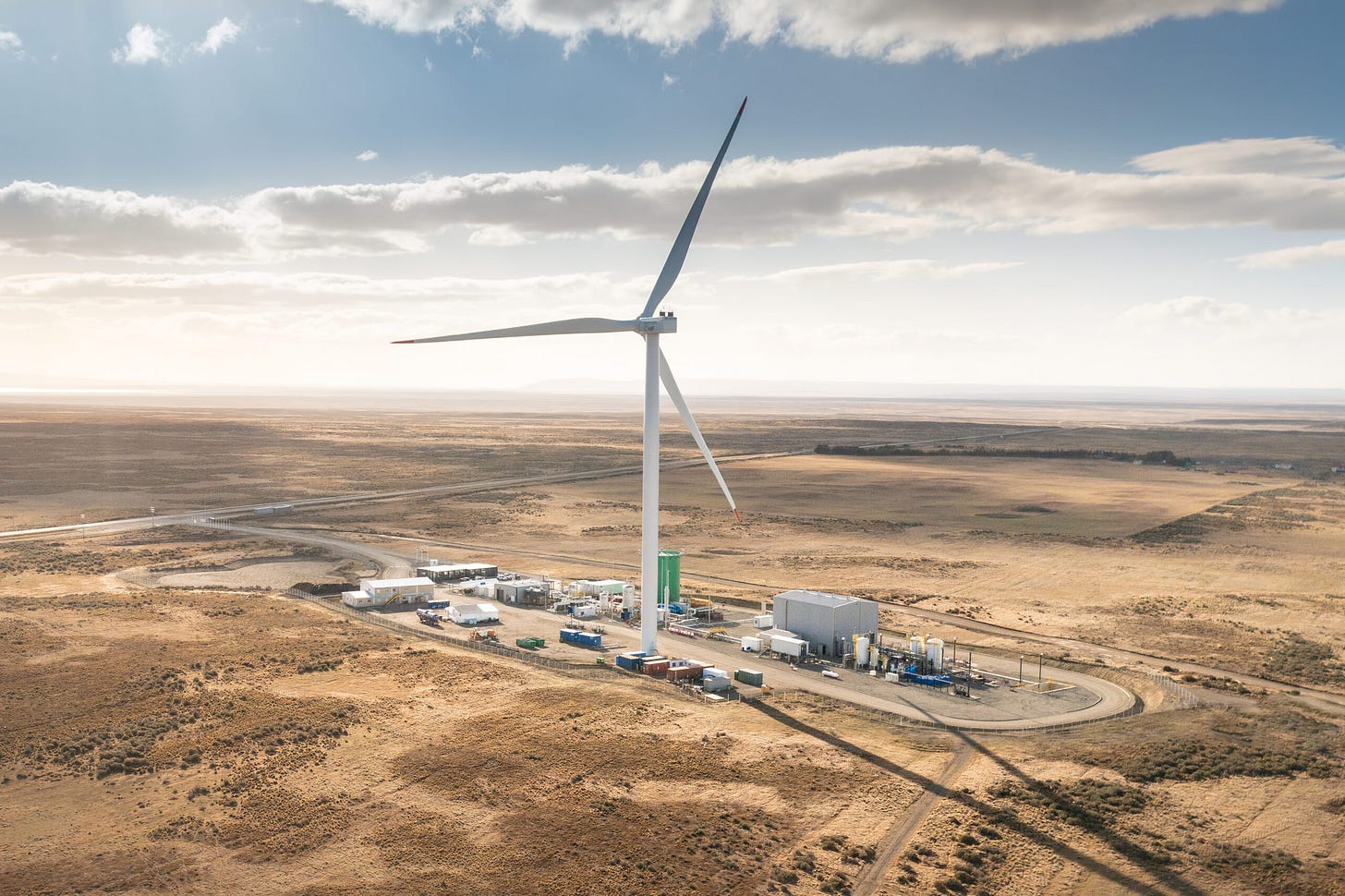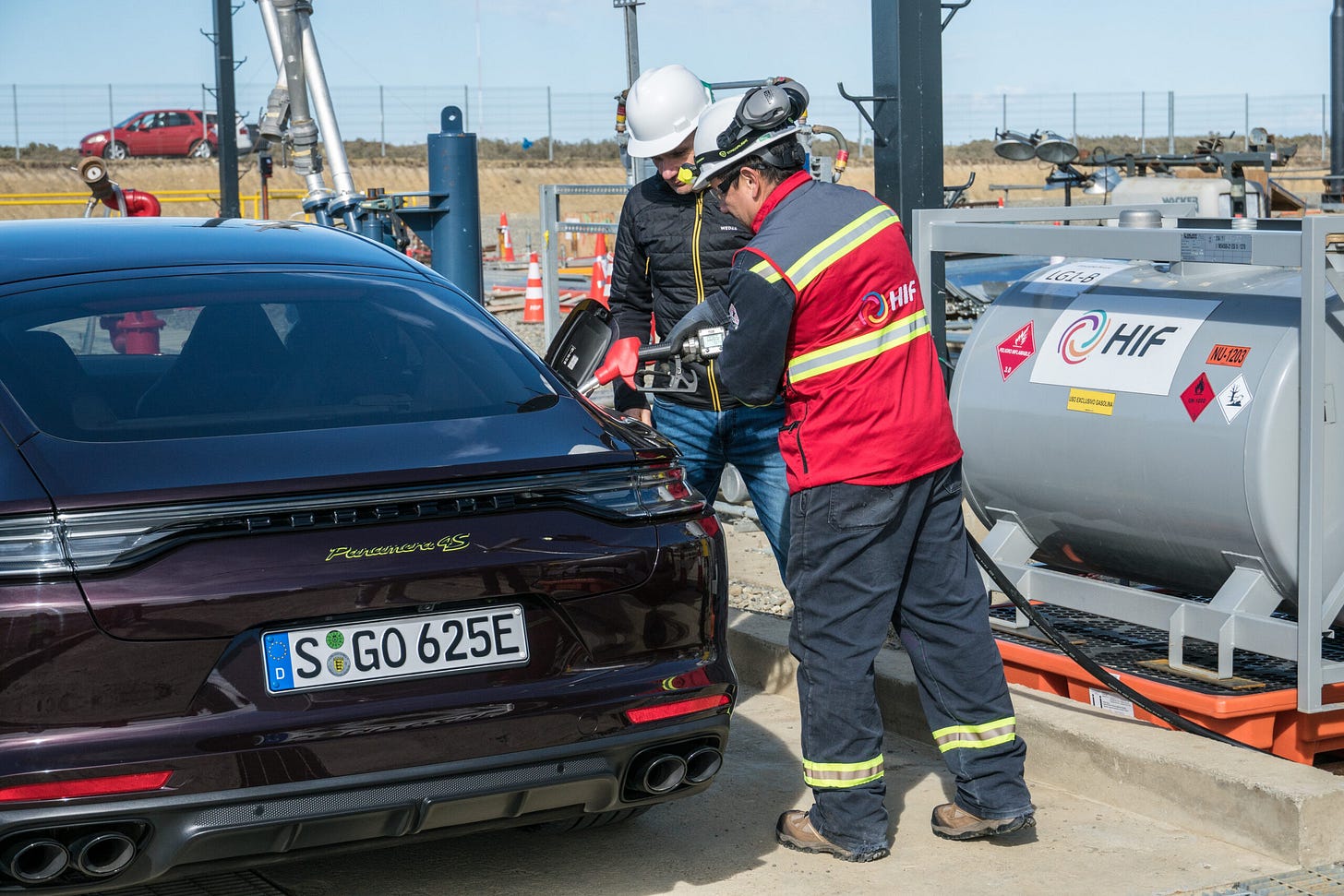HIF Global looks to scale e-fuel production to new heights
COO Clara Bowman explains how the company wants to harness untapped renewable energy resources to create "a new green oil” via the Methanol-to-Jet pathway.
With roots in Chile, HIF Global has set an ambitious goal of producing 150,000 barrels of e-fuel daily by the middle of the next decade through twelve large, commercial-scale facilities. This will result in the company becoming a significant supplier of eco-friendly fuel for industries heavily dependent on fossil fuels, such as aviation.
In an interview with Sustainability in the Air, COO Clara Bowman explained the company's strategy. This involves locating areas where it can harness untapped renewable energy resources to create "a new green oil” which can be exported to "demand centres" and converted into products previously derived from fossil fuels, such as plastics, jet fuel, or gasoline for road transport.
Locating sources of renewable energy
The company's journey began in Southern Chile, where it leveraged the region's abundant wind energy through its Haru Oni e-fuels plant. Bowman offers a key insight into their thinking:
“We can’t just let that [renewable resource] go to waste because we can't connect wires to be able to use those electrons.”
Instead, Bowman wanted to think about electrons as a “primary material” and see how they could find a way to export “that incredible renewable energy” to the places that need it.
This philosophy of locating where renewables are cheap and abundant has led to HIF Global looking at further plants in the United States, Uruguay and Australia, as well as establishing offices in Houston, Berlin, and Sydney as it seeks to make its mark on the global stage.
E-fuels via Methanol
HIF Global is making e-fuels using the Methanol-to-Jet (MtJ) pathway. Bowman said that using methanol is based on maximising resource efficiency, particularly renewable energy. This aligns with the views of other e-methanol producers we have spoken to, who consider it a less energy-intensive production process, resulting in a higher fuel yield compared to the more established Fischer-Tropsch method.
With Porsche as a partner and investor, HIF Global initially focused on the automotive industry. Porsche even brought automotive influencers to Chile to test-drive e-fuel-powered sports cars, showcasing the fuel made from the Haru Oni plant.
However, allocating e-fuels for the automotive industry rather than aviation remains controversial. Last year, Lufthansa CEO Carsten Spohr cautioned automotive manufacturers that the aviation industry will require all available e-fuel resources to decarbonise.
Bowman argued that though she said she understands the specific needs of aviation, she felt that right now, the emphasis needs to be on scale as opposed to an industry-specific approach:
"I don't think that we're at a stage right now where we need to choose what hydrocarbons we're going to be abating, whether it comes out of a tailpipe of a car or a jet engine or a ship. CO2 is CO2 at this point. And what we should be focused on more is: how can we scale up this industry to drive down costs?"
Global expansion plans
Scale was also a major focus of the recent SAF Congress in Amsterdam. A panel chaired by SimpliFlying CEO Shashank Nigam revealed that to meet its 2030 targets, the number of Sustainable Aviation Fuel (SAF) plants would have to increase tenfold from the current 33.
Bowman agreed that 2030 is quite challenging, given the lengthy development, construction and investment processes involved.
“In infrastructure terms, 2030 is actually yesterday. If you haven't contracted it already, it's going to be tough to get it by 2030."
Looking at its expansion plans, HIF Global's most promising projects include a plant under development in Tasmania, expected to begin production in 2028-2029.
This HIF Tasmania e-fuel facility has been shortlisted for the Australian Government's $2bn Hydrogen Headstart funding program. It is the only e-fuel project selected and the only one based in Tasmania. The company also agreed to collaborate with Optimal Renewable Gas (ORG) to potentially supply 15,000 tons of biogenic carbon dioxide to the facility, presenting a circular economy opportunity.
Bowman said that for the Tasmania facility, aviation could end up being one of the main beneficiaries, though no decision has been taken as yet:
“At the moment, we're evaluating all three fuels. We are looking at potentially methanol for the marine sector, gasoline (for road transport) or jet fuel. We're doing the engineering for the three alternatives, and we'll decide what makes the most sense as we complete that engineering stage.”
In addition to its projects in Australia, HIF Global has set its sights on Morocco. In May 2024, the company sponsored the first e-fuels conference in Morocco, announcing its plan to submit a proposal to Morocco's Green Hydrogen Offer and produce e-methanol for the aviation, shipping, and road transport sectors.
This highlights HIF Global's commitment to expanding its presence in regions with abundant renewable energy resources and supportive government policies.
Though its plans are ambitious, the company has made significant progress, including raising funds for its expansion plans.
In May 2024, the company announced a combined investment from existing shareholders and the Japanese energy company Idemitsu Kosan, securing US$164 million to fund its e-fuels projects. Idemitsu now joins other investors, including AME, EIG, Porsche, Baker Hughes, and Gemstone Investments.
As a result, in a sector where many alternative fuel companies never get further than a PowerPoint presentation, it’s clear that HIF Global is positioning itself at the forefront of the e-fuel revolution, paving the way for a more sustainable future in aviation and beyond.







